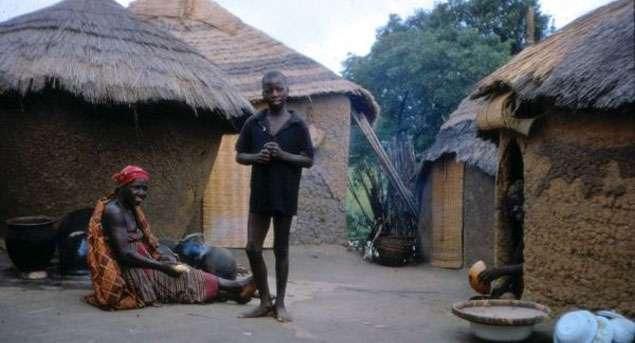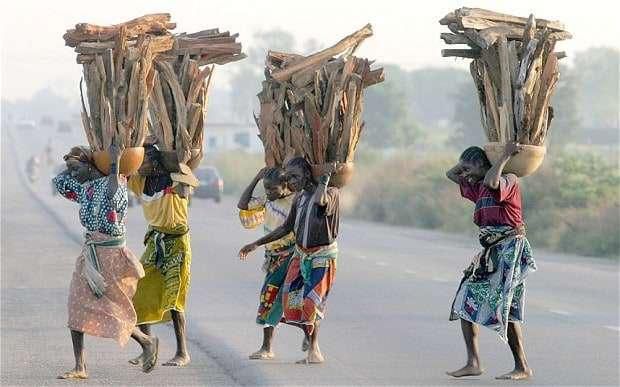What you should know about Gbagyi people, real owners of Abuja
)
Not a lot of Nigerians know about the real owners of Abuja, the Gbagyi people, whose land was reclaimed from them to form the seat of power.
Somewhere deep in the obscure lands of Abuja, Nigeria's Federal Capital Territory, are the indigenous people of Gbagyi or Gwari, who were the original settlers in the town before it was even carved out to be the seat of power.
In 1976, the then military government had the bright idea to find a 'no-man's land' in the geographic centre of the country, which no one group could lay claim to, and an area in which Nigerians could unite under.
Except the 8,000 square kilometres of land upon which the capital now stands, which includes the Presidential Villa, the National Assembly, dozens of Federal Government parastatals and institutions, and suburban neighbourhoods and malls, was somebody's land, the Gbagyi.

They were hurriedly forced off their land by the military government to make way for the construction of the new capital, and promised compensation and resettlement. The government also grossly underestimated the number of Gbagyi people living on the territory as they continued with their plan for the area.
Many displaced families were given housing, but some lived in transit and settlements camps for a long while and compensation plans were bungled.
Now, decades later, the ethnic group still feels the government has shortchanged them, and deprived them of their lands and heritage.
Brief history
Gbagyi or Gwari (also spelled Gbari) are peaceful, agriculturalist, artistic and Nupoid-speaking people living in the North-Central geo-political zone of Nigeria. They predominantly live in the Niger, Kaduna and the Federal Capital Territory. They are also found in Nasarawa and Kogi. Gbagyi is the most populated ethnic group and indigenous in the FCT, where the major occupation is farming.
According to oral tradition, the first settler was a hunter who went to hunt in Paikokun land, a thick forest in Abuja. Paikokun was the name of the mountain where the first settler inhabited.
The Gbagyi people initially used to live on mountain tops because they believed they were safer on the mountain than at the plain before western civilization made most of them relocate to the plain.
How to spot Gbagyi
Very unique to the Gbagyi women is the placing of goods however heavy on their shoulder. They believe the head represents the king of the entire body, hence, it should not be disturbed. They call the part of their body they place their goods as Bwapa. They also believe the load feel lighter on their shoulders than on their heads. It is very much still in practice till date.
Marriage
Marriage among the people of Gbagyi is soaked in deep tradition. When a man announces his interest in a woman, he would have to serve seven years in the bride’s father’s farm, labouring and supplying grains and other produce to the bride’s house in order for her to be well fed. Nowadays, the groom simply pays the bride’s price instead of serving seven years.

Religion
In their traditional religion, some Gbayi believe in a God called Shekwoi, the one who was there before their ancestors, but they also devote themselves to appeasing deities of gods such as Maigiro.
Indigenously, their main religion is Knunu, which they believe protects them from the evil that exist in the community. They worship the Knunu by offering fowl and beer as a sacrifice to a special tree found deep in the forest.
With westernisation, Islam became more prominent among the people after the Fulani jihad while Christianity was introduced to the people by the Sudan Interior Mission, also known locally as Evangelical Church of Africa. The Gbagyi people found it easy to embrace Islam more than Christianity because some practices of Islam such as devotion, using of amulets and polygamy were also practised in their indigenous religion.
Food
The Gwari people enjoy eating a meal known as Wyizhe. It is made from Guinean corn which is also used to make a special drink known as Zhepwo. The Gwari people also enjoy drinking a soup known as Knadolo made from locust beans.
Clothing
The Gbagyi people wear tie and dye clothing known as Ajeside, made from local cotton and traditional woven and dyed.
Occupation
The Gbagyi people are mostly farmers although they are also good in wood fetching, pottery, and blacksmith.
The Gbagyi people were also well known for their visual art most especially pottery. Other arts practised by the Gwari people are sculpture, iron smelting, domestic craft and smelting.

)
)
![The health benefits of ginger and garlic are unbelievable [Food NDTV]](https://image.api.sportal365.com/process/smp-images-production/pulse.ng/01082024/200694f2-3977-47a4-a142-89c80fe6766e?operations=autocrop(236:157))
)
![10 countries where prostitution is legal. [Source - scoop]](https://image.api.sportal365.com/process/smp-images-production/pulse.ng/31072024/5eda0369-74f6-4a3b-82f7-d7dab249c8ac?operations=autocrop(236:157))
![Tribal marks of Nigerian people and what they mean. [guardian]](https://image.api.sportal365.com/process/smp-images-production/pulse.ng/01082024/45e8c254-ebf2-4262-b639-c83e8b56a32e?operations=autocrop(236:157))
)
)
)
)
)
)
)
)
)
)